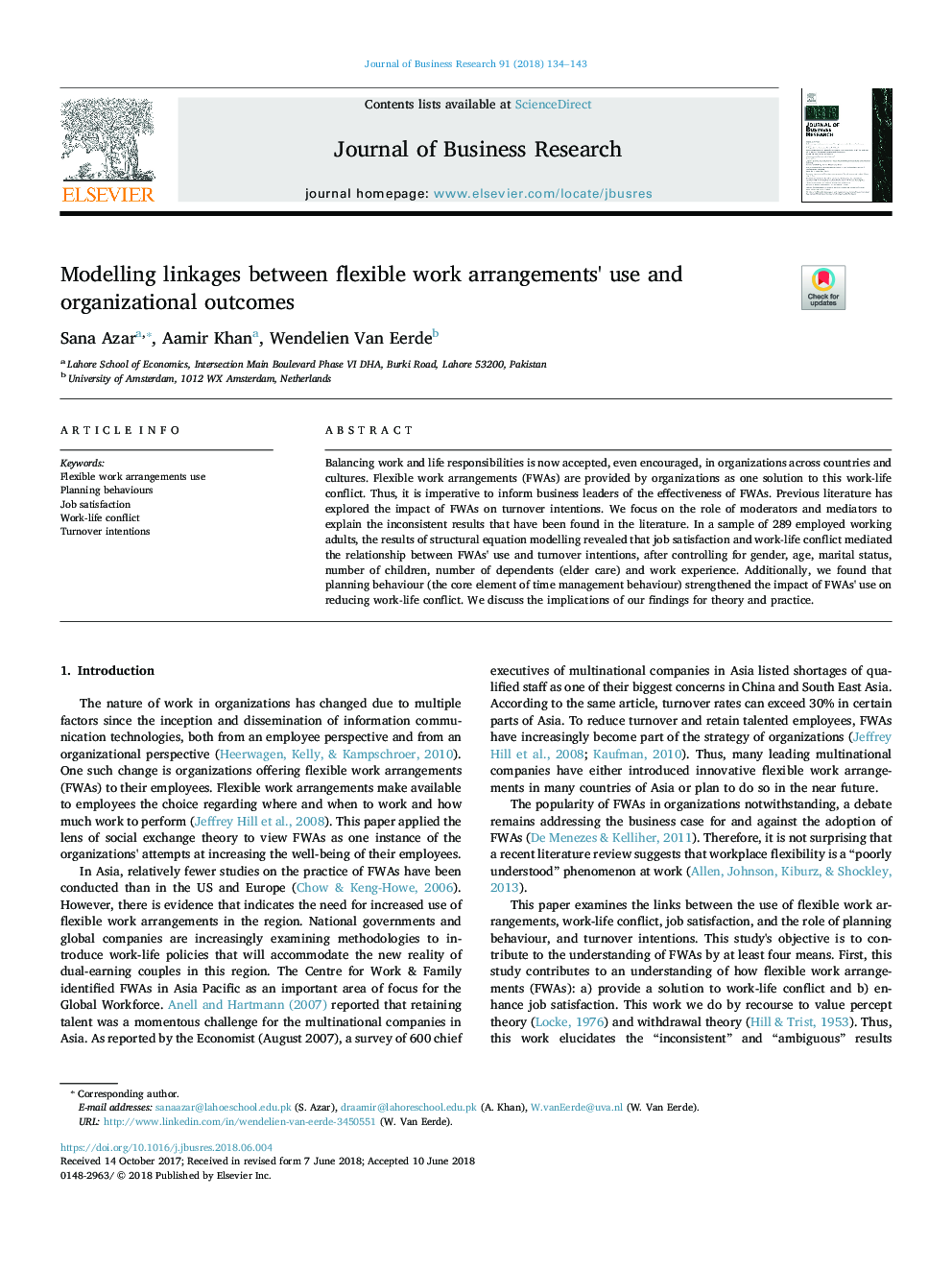| Article ID | Journal | Published Year | Pages | File Type |
|---|---|---|---|---|
| 7424922 | Journal of Business Research | 2018 | 10 Pages |
Abstract
Balancing work and life responsibilities is now accepted, even encouraged, in organizations across countries and cultures. Flexible work arrangements (FWAs) are provided by organizations as one solution to this work-life conflict. Thus, it is imperative to inform business leaders of the effectiveness of FWAs. Previous literature has explored the impact of FWAs on turnover intentions. We focus on the role of moderators and mediators to explain the inconsistent results that have been found in the literature. In a sample of 289 employed working adults, the results of structural equation modelling revealed that job satisfaction and work-life conflict mediated the relationship between FWAs' use and turnover intentions, after controlling for gender, age, marital status, number of children, number of dependents (elder care) and work experience. Additionally, we found that planning behaviour (the core element of time management behaviour) strengthened the impact of FWAs' use on reducing work-life conflict. We discuss the implications of our findings for theory and practice.
Related Topics
Social Sciences and Humanities
Business, Management and Accounting
Business and International Management
Authors
Sana Azar, Aamir Khan, Wendelien Van Eerde,
